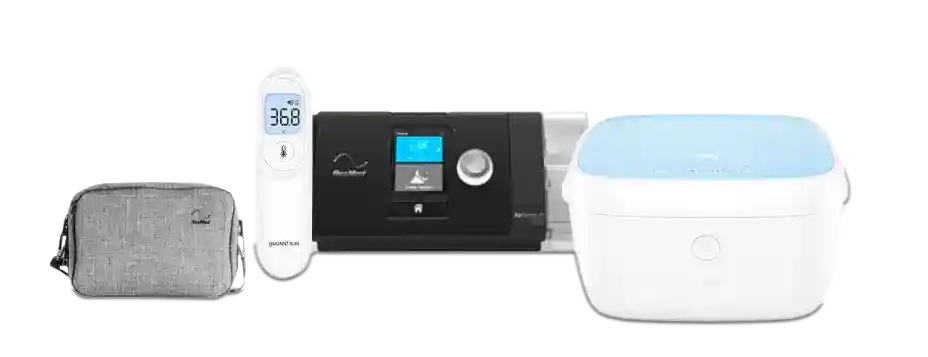CPAP Sleep Comfort
Continuous Positive Airway Pressure (CPAP) therapy is a common and effective treatment for sleep apnea. However, while CPAP masks are essential for managing this condition, they can often cause skin irritations for users. These irritations can range from mild discomfort to severe rashes, potentially discouraging patients from
If you suffer from sleep apnea, you may have been prescribed a CPAP machine to help you breathe better at night. CPAP stands for continuous positive airway pressure, and it works by delivering a steady stream of air into your airway to prevent it from collapsing. Using a CPAP machine can improve your sleep quality, reduce daytime
Humidification in CPAP devices alleviates nasal and throat dryness and facilitates a more comfortable breathing experience during sleep by adding moisture to the air you breathe.
This comprehensive guide from ApriaDirect will teach you everything you need to know about the CPAP humidifier including CPAP humidifier chambers,
If you’re having trouble sleeping, put yourself in a cave. Not literally, but you should create an environment that could very well be deep underground. Caves are naturally dark, with few (if any) noisy disturbances. But one of the under-appreciated aspects of caves—and your sleeping environment—is their temperatures. They’re
If “Good morning, sunshine” is the last thing you’re thinking at 6:15 AM, you’re like so many adults—sleep deficient. Sleep deficiency and sleep deprivation are different, by the way. If you’re sleep deprived, you don’t sleep long enough. But Americans spend an average of 8.76 hours a day sleeping, according to the 2016 American
You are not sure who is more excited about your new CPAP machine—you or your partner. Visions of silent, blissful slumber dance in your heads You prepare for your first night’s sleep, turn it on, and... It’s, um, kinda loud!
Not to worry. There are several things you can do to ensure a more muted experience with your CPAP machine.
Sleep is a valuable thing--worthy of time and effort to make sure it’s the best it can be. Here are seven common ways you may be hurting your sleep. Some of them may be surprising.
1. The only pillow you’re using is for your head
Everyone needs a perfect pillow to nuzzle into after a long day. However, many of us don’t use pillows
Do you sleep on your side? On your stomach? Or perhaps on your back?
Sleeping on your back has been found to be the healthiest position to sleep in, says the National Sleep Foundation. It is said to minimize neck and back pain, as these areas are in a neutral position while you sleep.
The National Sleep Foundation goes on to


